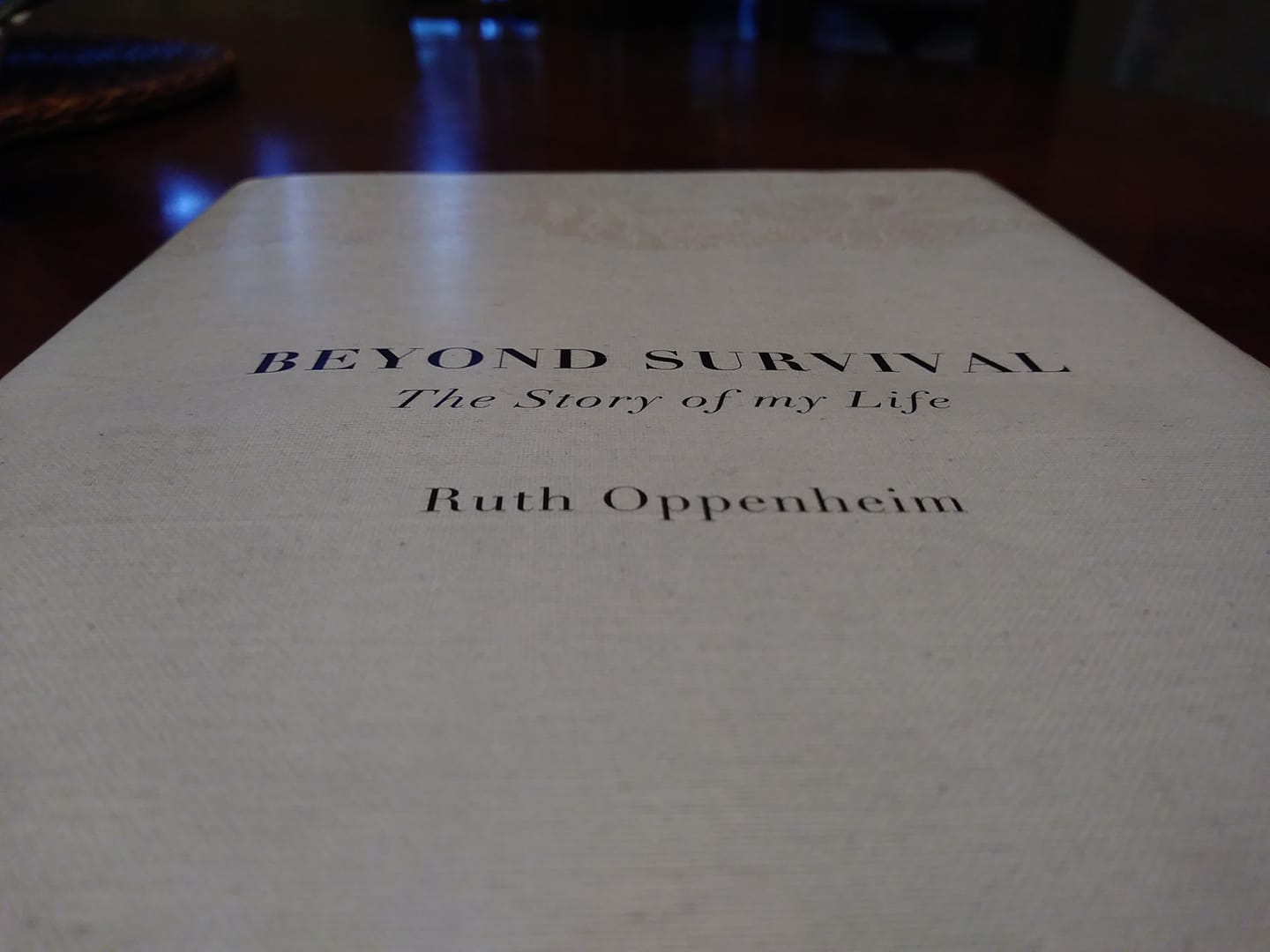OCTOBER 8, 2020 – The inscription reads,
For Eric,
Who shares my interest in writing.
With fond memories,
Ruth
“Ruth” is the mother of Jeff Oppenheim, my closest friend in college. The inscription appears inside the cover of her memoir, Beyond Survival, which I received Monday. By yesterday afternoon I’d devoured the book, savoring every word of it.
What Ruth’s inscription doesn’t reveal is that apart from her interest in writing, she has something awe-inspiring to write about: her life of over nine decades. I’d first met Ruth some 45 years ago when Jeff invited me to stay at his family’s home in Barrington, RI. She was gracious and accommodating, and she exuded refinement and intelligence. I was intrigued by the bits of her life story that Jeff had shared with me and pieces that I’d learn from Ruth herself during a number of visits.
Her story originated in the northern German town of Werne in the district of Münster. With two older sisters and a younger brother, she lived a comfortable early childhood thanks to her parents’ loving nurture and hard work ethic. But then the Nazis came to power (January 1933), the Nuremberg Laws were enacted (September 1935), and on Kristallnacht (November 9/10, 1938) young Ruth watched in horror as Nazi thugs beat and dragged her father away.
He survived, and the family—along with the Torah her father had salvaged from their torched synagogue—narrowly escaped Germany (first Ruth’s father and oldest sister; later the rest of the family). Beloved relatives narrowly missed escaping (thanks to the American Consulate denial of an uncle’s visa because of a limp from a motorcycle accident—despite his leap over a table to prove he wasn’t disabled)—and perished.
Escape from horrors was the start—not the finish—of a marathon. Strangers unto a new land, Ruth’s parents worked themselves to the bone to rebuild their lives and provide for their family. Ruth and her siblings faced their own challenges in adjusting to a new country and language. They survived, then thrived. And in thriving, they didn’t simply receive; they gave back in abundance.
Ruth’s story also captures much about Jeff’s father, Walter, and his family, who’d escaped from Germany (Nuremberg) in 1938. I remember Walter well, and though in personality he was quite different from Ruth, they complemented each other perfectly. In heart and character, they were cut from the same cloth.
As Ruth’s memoir unfolds, it reads as the quintessential immigrant story of struggles and strivings, all to higher ground. It gives hope and inspiration in these troubled times.
Ruth’s attention to detail strikes a perfect balance between essential and extraneous. This carries over to her writing style and advanced command of English—or more precisely, to her command of language, not only of the pen but of the heart and of insight into the human condition.
Her long, abundant life testifies to the power of good over evil. By living . . . beyond survival . . . Ruth and her American family honor the memory of those who perished.
(Remember to subscribe to this blog and receive notifications of new posts by email.)
© 2020 by Eric Nilsson
